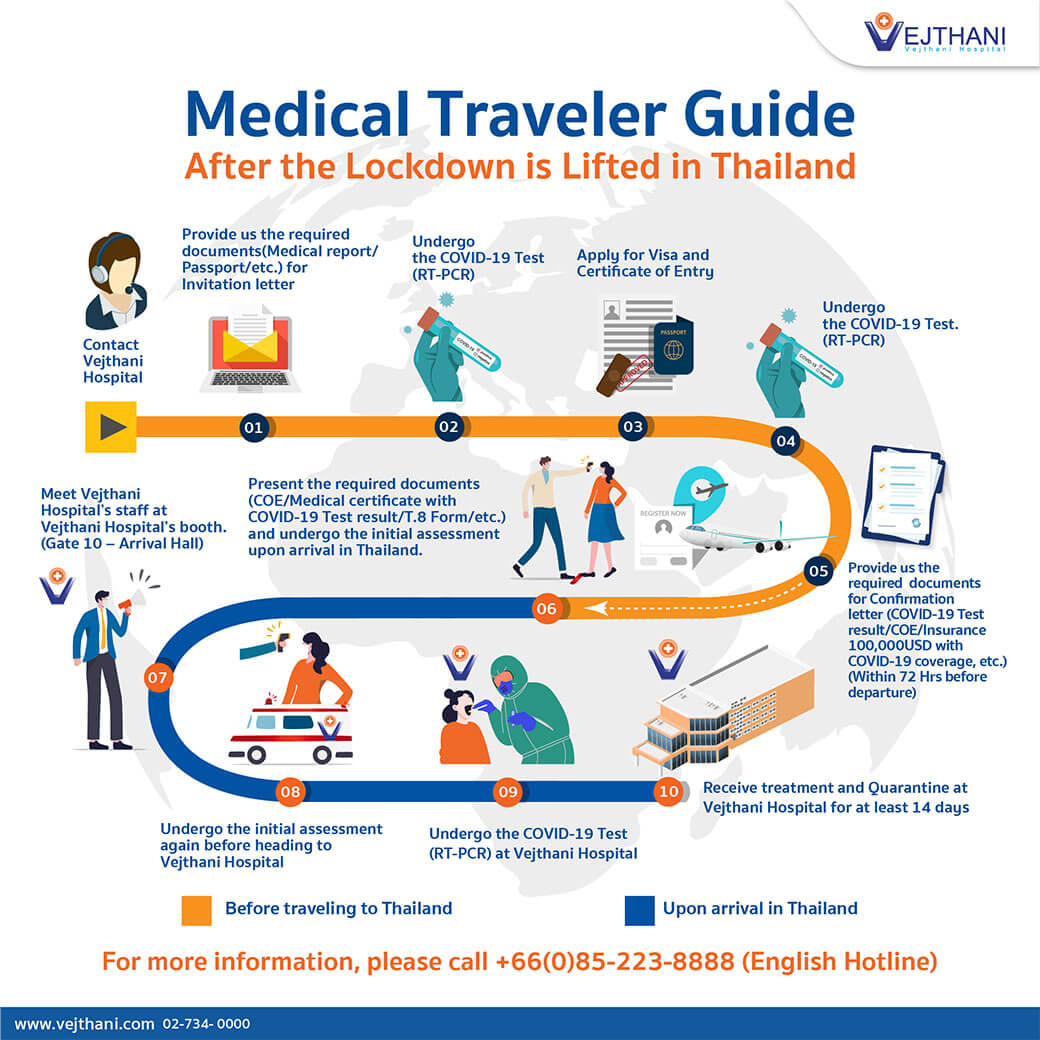Thailand’s health insurance system is considered one of the most comprehensive in Asia and is praised for its widespread coverage, affordability, and accessibility.
In 2002, the nation launched its program for universal coverage, granting all citizens access to universal health care. Let’s see how Thailand’s health insurance system works here.
Thailand Health Insurance System
Most of the local people in Thailand are covered under a universal healthcare system. Thailand’s Universal Health Coverage (UHC) system states that all residents are entitled to free medical care. Foreign nationals with resident status are also eligible for this coverage, but to pay their medical costs, they must go to a public facility near where they live. Therefore, they could only have a few options.
The system also has some problems. The approach limits the number of hospitals providing public care and creates lengthy patient lines and longer wait periods. Additionally, each individual is only permitted to get free or inexpensive medical care at the one designated hospital. It can cost a little more to use other public hospitals.
Due to the possibility of reimbursement for medical care received in the private sector, many locals choose private health insurance.
Public Healthcare in Thailand
The system was first established in 1991 by creating the National Health Security Office (NHSO), which is responsible for managing the country’s Universal Coverage Scheme (UCS). This scheme provides health insurance coverage to all Thai citizens, as well as registered migrants and foreign residents.
The UCS covers various medical services, including inpatient and outpatient care, prescription drugs, and preventive services.
The insurance covers care provided by public and private sector providers, and beneficiaries can choose from a large network of healthcare facilities nationwide.
One of the key benefits of the UCS is its affordability. Thai citizens contribute to the system through a combination of payroll taxes and out-of-pocket contributions, with the government providing subsidies for low-income families.
The contributions are modest, with most people paying less than 1% of their income into the system. This has helped to ensure that UCS is accessible to everyone, regardless of their financial status.
Thailand Health Insurance System Works for Expats and Foreigners
In Thailand, you might be qualified for health insurance through the nation’s social security system if you work for a private company. Payroll deductions cover the cost of this coverage. Your loved ones would need private insurance because it does not cover dependents.
Foreigners and tourists are not given access to healthcare under Thailand’s national health policy. Therefore, you will need private insurance if your job does not provide health coverage. Thailand has world-class healthcare at a substantially lower cost than other countries, but private insurance will bring a key level of security.
You never know when sickness can hit, or you might trip and fall down a flight of stairs. Long-term medical care in Thailand may incur high costs, particularly if you visit a private hospital.
Private Health Insurance for Expats in Thailand
You will require private health insurance if you are a visitor or a resident of Thailand and are not covered by any of the aforementioned systems. Thankfully, Thailand’s health insurance system offers many reasonably priced options. The greatest hospitals in Thailand that accept private insurance do so often.
According to rumors, the Thai government would demand that foreigners with the “O-A” (Long Stay) nonimmigrant visa own Thai insurance policies that cover their whole stay in Thailand. Although you should check with your visa official, there are a few possibilities for minimal coverage.
Private vs. Public Hospitals in Thailand
Before leaving your house, visit their website to determine if a private hospital accepts your insurance. It can be beneficial to check the websites of various hospitals to compare pricing in advance if your medical condition is not urgent. You might be able to make an appointment by visiting a website.
While going to a public hospital or clinic can save you money, foreigners might have to pay a little more than Thai citizens. You should be prepared for long wait periods and crowded waiting areas while visiting a public institution. In contrast, you can frequently stroll into private settings without an appointment and receive care fast.
Additionally, you will probably have to communicate in Thai at a public hospital instead of private facilities, which frequently have employees who know English and other languages. If your Thai isn’t very good, you might want to bring a Thai-speaking friend or family member who can translate for you. They can also pass the time with you while you wait.
Thai doctors are well-educated and must know about current medical research and practices. You will receive care whether you go to a public or private hospital. However, it’s possible that public hospitals don’t have access to the same level of technology as those that do. Additionally, you can experience difficulties getting some operations.
Thailand Health Care Costs
Thailand’s health insurance system requires you to purchase an insurance policy covering at least 40,000 Baht ($1340) for outpatient expenditures and 400,000 Baht ($13,400) for inpatient costs to get a long-stay non-immigrant O-A visa.
Visitors visiting Thailand must also obtain health insurance covering at least $100,000 in COVID-related medical expenses due to the COVID-19 outbreak. This rule applies to people staying for longer visits, tourists, and other short-term guests. Some insurance plans will fulfill this criterion while covering additional medical emergencies.
Conclusion
Thailand has made great strides in ensuring its citizens have access to quality, affordable healthcare. The government is working to address any remaining challenges to maintain and improve the system.
The system’s success is a testament to the government’s commitment to providing high-quality health services to all its citizens, including ex-pats.
